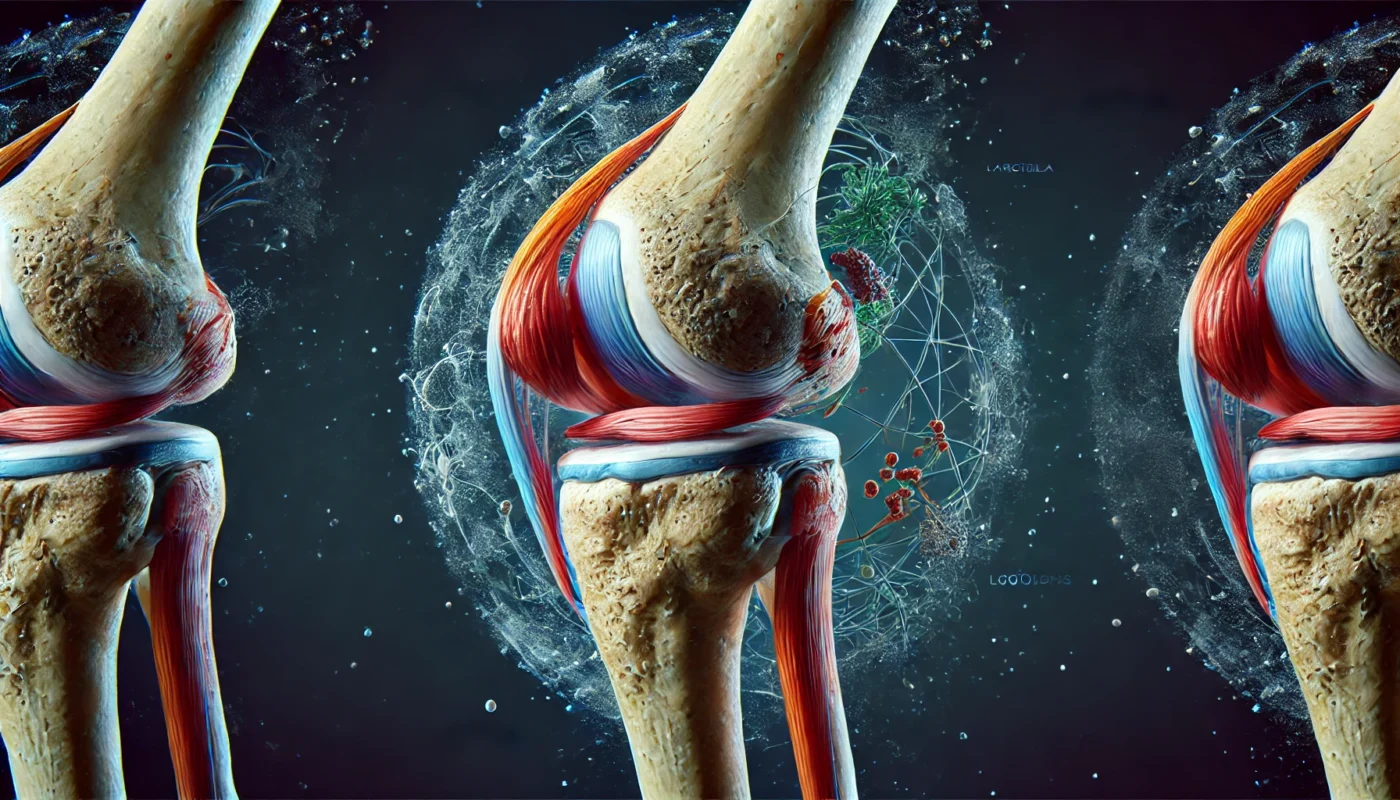Chronic inflammation: a term that might sound slightly intimidating, and rightfully so. It’s a silent aggressor lurking within the body, often going unnoticed until it manifests as something more severe. In this article, we’ll delve into the intricacies of chronic inflammation, exploring why inflammation can be detrimental to your health and how to manage it effectively.
Tag Archives: Sleep Quality
Inflammation is a protective mechanism that helps the body heal from injuries and fight infections. When the body detects a threat, the immune system releases white blood cells to the affected areas, resulting in redness, heat, and swelling. While this response is beneficial in the short term, chronic inflammation can cause lasting damage to healthy tissues and organs. It is linked to a variety of diseases, including arthritis, heart disease, and even cancer.
Before discussing probiotics, it’s essential to grasp the intricacies of autoimmune diseases. These conditions, such as rheumatoid arthritis, lupus, and multiple sclerosis, involve the immune system misidentifying its own tissues as threats, leading to chronic inflammation and tissue damage. The gut microbiome, a complex ecosystem of bacteria residing in the digestive tract, plays a crucial role in regulating the immune response. An imbalance in this microbiome, known as dysbiosis, is often linked to autoimmune conditions.
Body aches and chills are common symptoms associated with viral infections such as the flu and the common cold. They can also result from physical exertion, stress, or underlying health conditions. Understanding the underlying causes can guide us in choosing the most effective remedies.
Mindfulness is the practice of being fully present in the moment, consciously aware of your thoughts, emotions, and surroundings without judgment. It is rooted in ancient meditation traditions but has gained popularity in modern times due to its applicability in improving mental health and cognitive function.
The knee joint is a synovial joint, which means it’s surrounded by a capsule that produces synovial fluid. This fluid is essential for reducing friction between cartilage surfaces during movement. Think of it as the engine oil of your joints, providing the necessary lubrication for smooth operation.
Joint inflammation is a common health concern. It’s often linked to arthritis, a condition affecting millions worldwide.
Diet is increasingly recognized as a key factor in managing joint inflammation. Among various dietary components, wheat, specifically gluten, has come under scrutiny.
The question arises: does wheat cause joint inflammation? This article aims to explore this complex issue.
We’ll delve into the biological mechanisms of gluten’s impact on the body. We’ll also examine the difference between celiac disease, wheat allergy, and non-celiac gluten sensitivity.
The potential link between wheat consumption and joint inflammation is a topic of ongoing research. We’ll review the current scientific evidence, acknowledging the need for further studies.
Personal anecdotes of arthritis improvement on a wheat-free diet add another layer to the narrative. We’ll share these stories, while emphasizing the importance of individual dietary responses.
Finally, we’ll provide practical advice for those considering a wheat-free diet. We’ll also discuss the broader implications of dietary choices on joint health.
Join us as we navigate the intricate relationship between wheat and joint inflammation. This exploration aims to empower you with knowledge, enabling informed decisions about your health.
Sleep is essential to our physical and mental well-being, yet millions of people struggle to get the restorative rest they need. According to the Centers for Disease Control and Prevention (CDC), 35% of adults in the United States report sleeping fewer than the recommended seven hours per night. Chronic sleep deprivation has been linked to […]
Arthritis is a common condition that causes pain and inflammation in the joints. It affects millions of people worldwide, impacting their quality of life.
Finding the best pain reliever for arthritis can be a daunting task. With a plethora of over-the-counter medications and alternative treatments available, it’s easy to feel overwhelmed.
This comprehensive guide aims to demystify arthritis pain management. It provides a detailed overview of various strategies, from traditional medications to holistic approaches.
We’ll delve into the science behind these treatments, making it easier for you to understand their benefits and potential risks. This knowledge can empower you to make informed decisions about your health.
Whether you’re a fitness enthusiast, a health enthusiast, or a medical patient, this guide is designed to help you navigate the complex world of arthritis pain management.
Let’s embark on this journey towards improved wellbeing, starting with a deeper understanding of arthritis and its impact.
In the quest for optimal health, we often turn to nature’s bounty. One such gift is the humble cherry, a fruit celebrated not just for its sweet taste, but also for its potential health benefits.
But are cherries good for inflammation?
This question has piqued the interest of scientists and health enthusiasts alike. Recent research suggests that cherries, particularly tart cherries, may indeed have potent anti-inflammatory properties.
These properties could make cherries a valuable addition to a holistic health regimen. Whether you’re a fitness enthusiast seeking to optimize recovery, a health enthusiast aiming to understand the science behind popular health foods, or a medical patient looking for natural ways to manage inflammation, cherries might be worth considering.
In this article, we’ll delve into the science behind cherries and inflammation. We’ll explore the compounds in cherries that contribute to their anti-inflammatory effects, and how these effects could potentially benefit various aspects of health and wellbeing.
We’ll also provide practical advice on how to incorporate cherries into your diet, and what to consider when doing so.
So, let’s embark on this journey of discovery, and unravel the science behind cherries and inflammation.
- 1
- 2










